Written by DAPP Malawi. Posted in Community Development
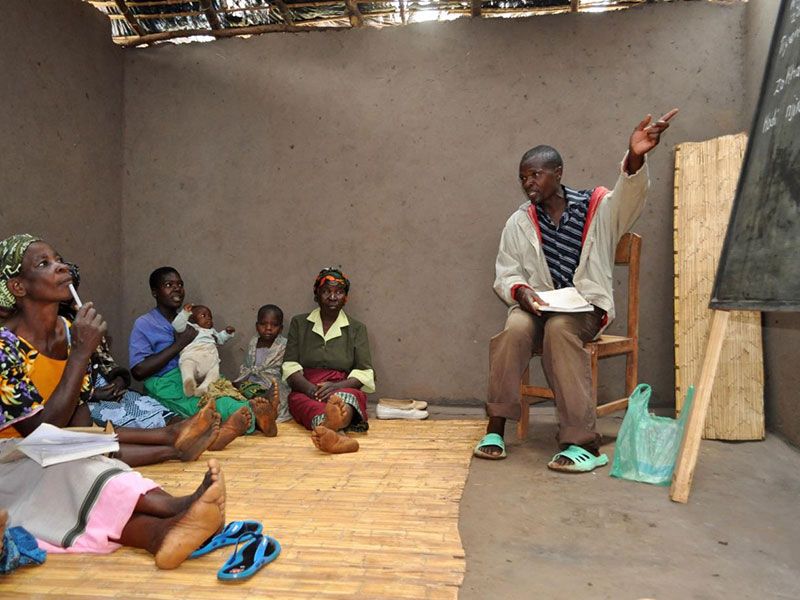 For many young people and adults, non-formal education is the main route to new learning. DAPP Malawi and its partners have been conducting adult literacy classes in the communities in order to empower the most disadvantaged rural farmers.
For many young people and adults, non-formal education is the main route to new learning. DAPP Malawi and its partners have been conducting adult literacy classes in the communities in order to empower the most disadvantaged rural farmers.
Marita Nkosi from Fuse Village in Traditional Authority Mkukula in Dowa district is one proud woman farmer, who has no regrets for joining the adult literacy classes happening in her community.
Previously she confesses that she was among the illiterate many. “We could not be able to read, write or count and because of that my home was poor, hungry and with no financial capacity to afford the basic necessities”.
But after undergoing adult literacy training and budgeting among other areas, she claims her life is completely reinvigorated.
“Our lives have changed for the better. We are now able to go to the markets to conduct business without any trouble. We are also able to account for our finances when we are buying or selling our farm products,” says Marita Nkosi.
Marita Nkosi, who is a member of Tikondane Women Farmers Club says last harvesting season, for instance, realized close to 200 bags of maize and 22 bags of soya beans.
The mother of four says she expects to receive about MK150,000 (approximately 250$) from a village savings facility, which the group established after receiving training from DAPP Malawi.
“These savings help us to buy fertilizer and other household needs. Through the same savings, I have managed to send one of my girls to school up to form four,” she says.
Marita disclosed that through the DAPP Malawi Farmers’ Clubs, women have received various skills including livestock management, conservation agriculture and climate change adaptation skills.
She adds, “We are happy that farmers have tapped the skills and are able to use them and transform their lives. Farmers are able now to produce enough for their household consumption and surplus for sale.”
Integrating adult literacy within farming programs has been decided after realizing the high illiteracy levels among the adult population and the hindrances that puts in the way of farmers becoming more successful in their production. Additionally, it is supporting the United Nations Sustainable Development Goal number 4 which seeks to achieve quality education for all and adult education being one of the key targets.
According to UNESCO, “Learning to read and write is a fundamental right. Yet, 38 % of African adults (some 153 millions) are illiterate; two-thirds of these are women.” Africa is the only continent where more than half of parents are not able to help their children with homework due to illiteracy. Most people, who stays in the rural communities of Sub-Saharan Africa and participate adult literacy training are women. As most of the rural women source their own livelihood through carrying out subsistence farming, there is need to mainstream adult literacy within agriculture based interventions to better the impact of the program effects.
The Federation Humana People to People, which DAPP Malawi is a member of, developed the Farmers’ Clubs program to develop capacity of rural farmers in developing countries to improve farming and get increases in yields, conserve the environment, adopt financial literacy as well as get better bargains when selling the surplus agro-produce at the local markets.
The inception of Farmers’ Clubs in Malawi in 2006 has been done with in-cooperation of adult literacy to better basic reading and ability to exercise basic numeracy skills. The simple literacy skills have gone a long mile in aiding the financial planning, budgetary management as well as market bargaining for prices to ensure gain on selling agro-produce. Farmers’ Clubs Women in Dowa is one DAPP Malawi project which is carrying out adult literacy among its active farmers.
September 2016
Written by DAPP Malawi. Posted in Community Development
Fighting Gender Based Violence through Savings Clubs
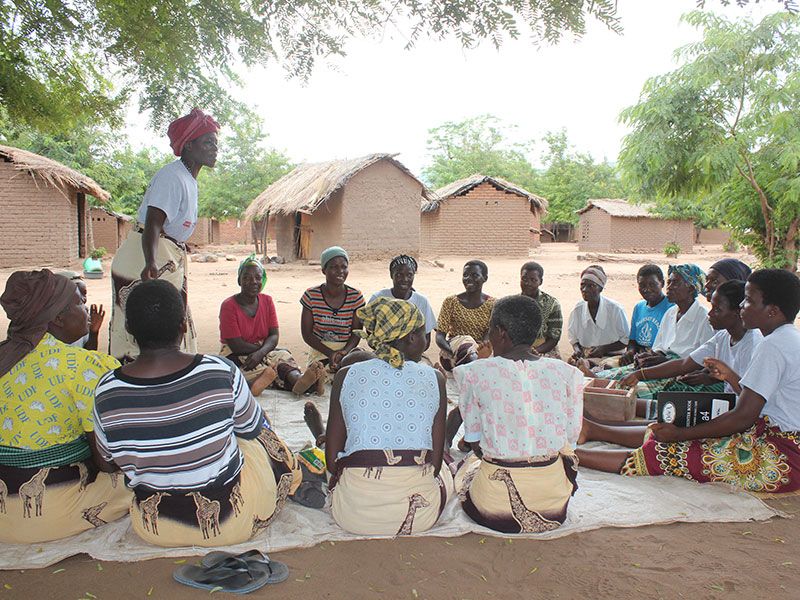
An innovative concept of village based savings clubs has seen DAPP Malawi empower rural women in the Southern Region of Malawi in fighting gender based violence.
The costs of gender-based violence are substantial. Violence against women and girls impede their full participation in society, limits access to education and economic participation, and hinders efforts to achieve gender equality broadly. Microfinance — both credit and savings — has potential to improve the well-being of poor women in developing countries. Insufficient income among poor households is one of the sources of domestic disputes most of which have undesirable consequences on women.
The World Bank Group’s country estimates on Gender Based Violence suggest that factors like out-of-pocket expenditures, lost income, reduced productivity due to intimate partner violence alone can cost up to 4 percent of GDP — more than many governments spend on primary education.
The savings clubs have been designed to respond to bring solution to the challenges associated with income disputes. DAPP Malawi mobilizes rural women to actively join forces and pool income together to make available opportunities for some to borrow and pay back at relaxed terms. The main outcome is increase in household assets, improved liquidity as well as avoided bank charges associated with securing loans.
“We formed women groups to help sensitize the community on gender based violence. However, we decided that while discussing issues of gender based violence, we must also have a component of village savings which will in turn empower those that were economically weak and I am proud to say that we have already started enjoying the fruits,” says the chairperson of Tiyamike Women Group in Chiradzulu district, Mable Mongola.
With over 100 members, Mongola says the women groups have already contributed into reduction of cases of gender based violence in homes.
Martha Kondwani, 29, is one of the proud women who have benefited from the women groups with guidance and capacity building from Development Aid from People to People Malawi.
While she had lived in a violent home for years, today, Martha says they are now a happy family after her husband received counselling by the women group, who intervened in her family problems.
“My husband used to beat me up every time he got drunk. If I dared ask him why he came home late, he would slap me. This other day he beat me up and did all sorts of things. I decided to report the issue to the women group and the group summoned him and he was counselled and from that day, he has changed and we are now a happy family,” says Kondwani.
Following her husband’s change of behaviour, the family is now able to use the money realized from village savings to buy household items and provide for their 14 year old child who is in Standard 6.
Patricia Makwacha is another woman who has found solace in the women groups. Her husband passed away in 2010 leaving her with three children.
Her husband’s relations however, decided to grab all the property including their minibus which the family owned. She was left helpless with no clue as to what happens next to her life.
“Our car was sold, money from our bank account was withdrawn, and everything else was taken away from us. I could not afford to go to the court because I had nothing on me. I am now considering taking the issue to the women’s group,” says Makwacha.
DAPP Malawi has facilitated formation of several women groups throughout the district to help sensitize and civic educate the communities on issues of gender based violence and women’s rights.
September 2016
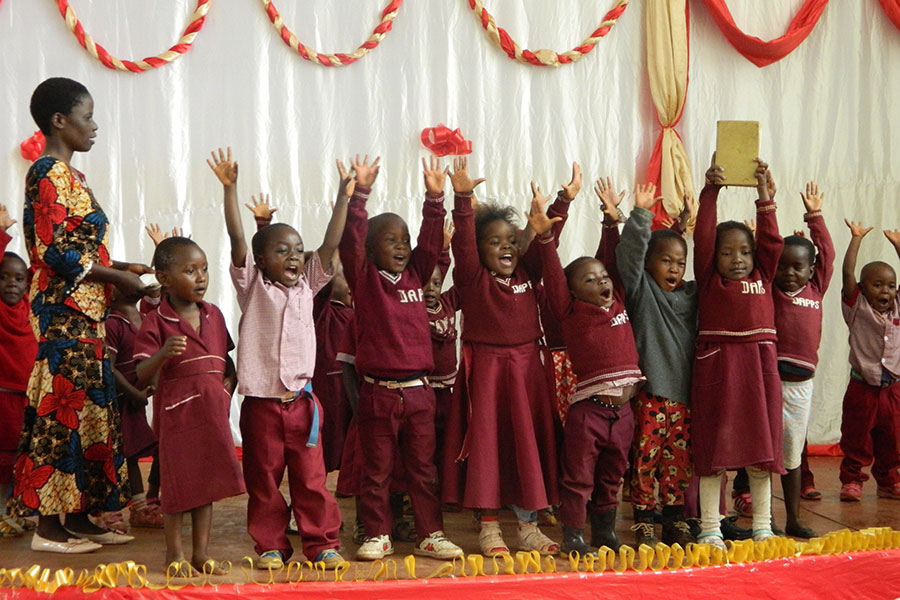

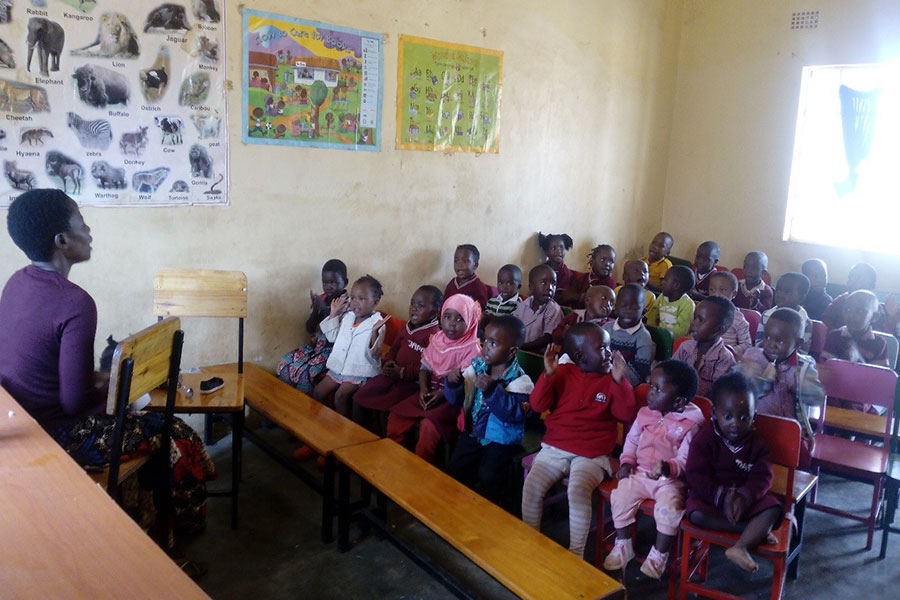

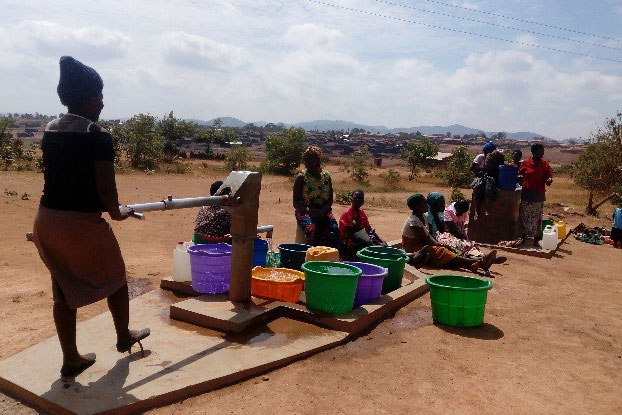
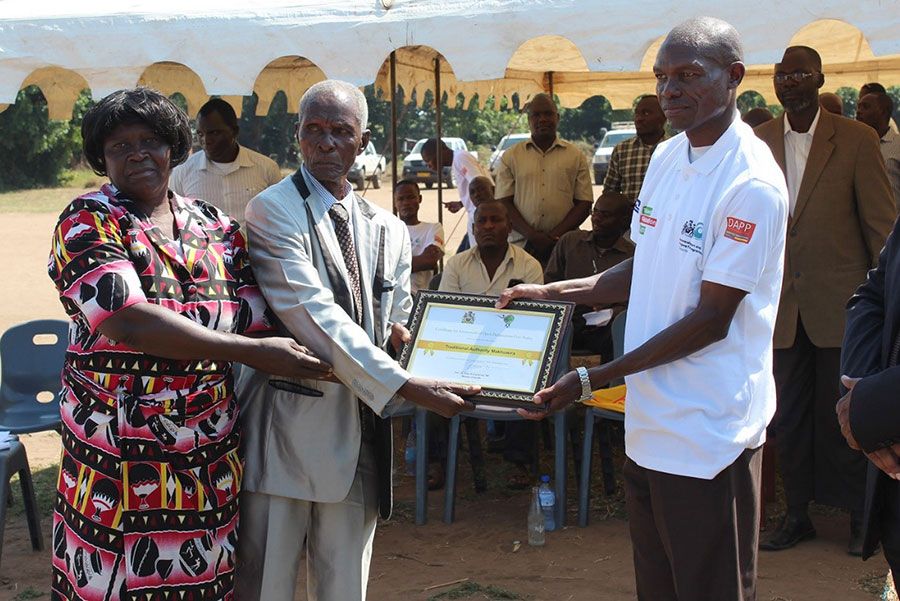 DAPP Malawi in partnership with the Malawi Governmaent, with financial assistance from the Global Sanitation Funds via the Water Supply & Sanitation Collaborative Council and Plan International Malawi has for the past 6 years been implementing the Accelerated Sanitation and Hygiene Practices Programme (ASHPP). During this period, DAPP supported the district council to implement sanitation innervations for Traditional Authority Mulilima to attain Open Defecation Free status. The project has supported T/A Makhuwira to achieve a similar goal, the ODF celebration for T/A Makhuwira was held on 12th May and was presided over by Mr. Beston Chisamile the Chief Director for Administration in the Ministry of Health representing the Minister.
DAPP Malawi in partnership with the Malawi Governmaent, with financial assistance from the Global Sanitation Funds via the Water Supply & Sanitation Collaborative Council and Plan International Malawi has for the past 6 years been implementing the Accelerated Sanitation and Hygiene Practices Programme (ASHPP). During this period, DAPP supported the district council to implement sanitation innervations for Traditional Authority Mulilima to attain Open Defecation Free status. The project has supported T/A Makhuwira to achieve a similar goal, the ODF celebration for T/A Makhuwira was held on 12th May and was presided over by Mr. Beston Chisamile the Chief Director for Administration in the Ministry of Health representing the Minister.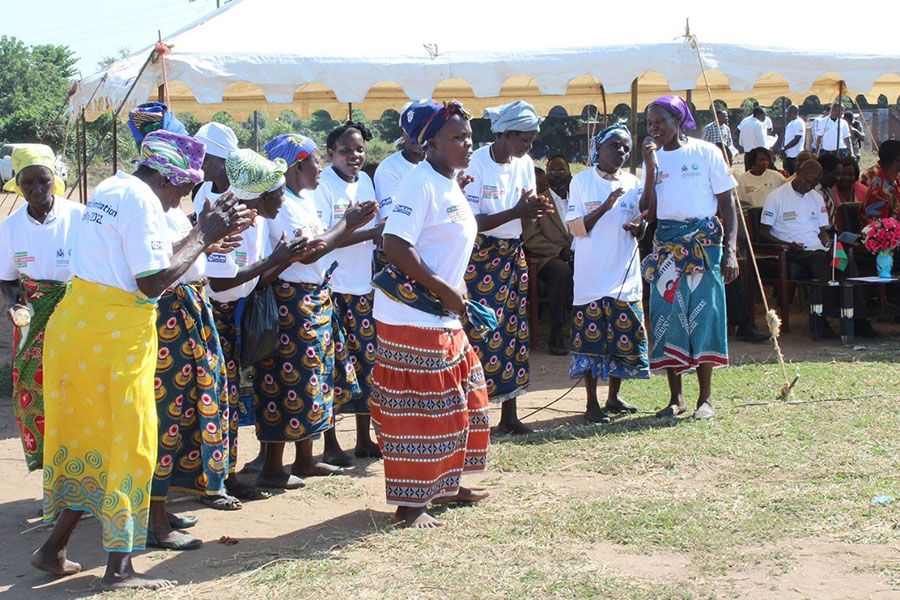 On declaring his area Open Defecation Free T/A Makhuwira said he will ensure that all his subjects were following good hygiene in order to prevent water borne diseases. He also asked government to expand Makhuwira Health Centre which he said was too small to serve people from three districts of Chikwawa, Thyolo and Nsanje on top of ensuring that drugs were available at the facility. Chief Makhuwira further explained that the poor road network from Thabwa to his area poses a serious threat to pregnant mothers that were referred to receive further treatment at the district hospital.
On declaring his area Open Defecation Free T/A Makhuwira said he will ensure that all his subjects were following good hygiene in order to prevent water borne diseases. He also asked government to expand Makhuwira Health Centre which he said was too small to serve people from three districts of Chikwawa, Thyolo and Nsanje on top of ensuring that drugs were available at the facility. Chief Makhuwira further explained that the poor road network from Thabwa to his area poses a serious threat to pregnant mothers that were referred to receive further treatment at the district hospital.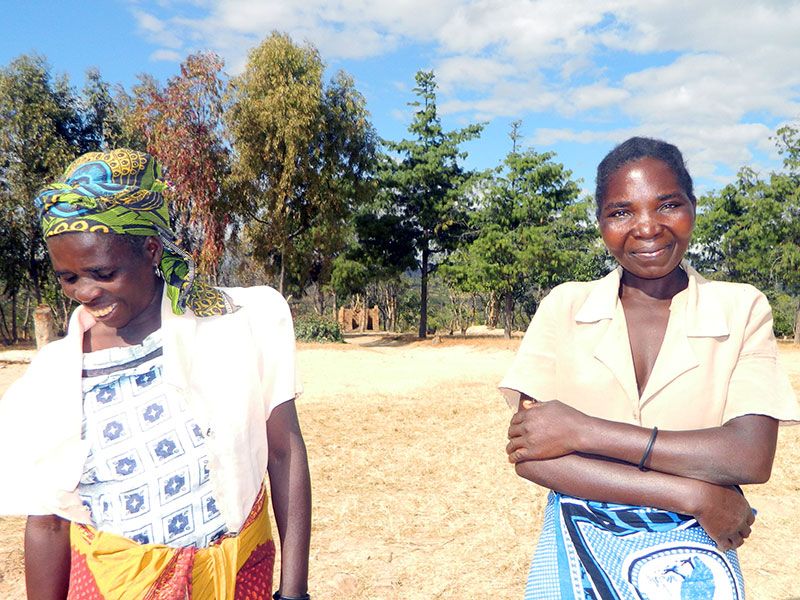 Below is a testimony from one of the community members around DAPP Mzimba TTC who has been active in the education activities carried out by the college.
Below is a testimony from one of the community members around DAPP Mzimba TTC who has been active in the education activities carried out by the college. For many young people and adults, non-formal education is the main route to new learning. DAPP Malawi and its partners have been conducting adult literacy classes in the communities in order to empower the most disadvantaged rural farmers.
For many young people and adults, non-formal education is the main route to new learning. DAPP Malawi and its partners have been conducting adult literacy classes in the communities in order to empower the most disadvantaged rural farmers.
